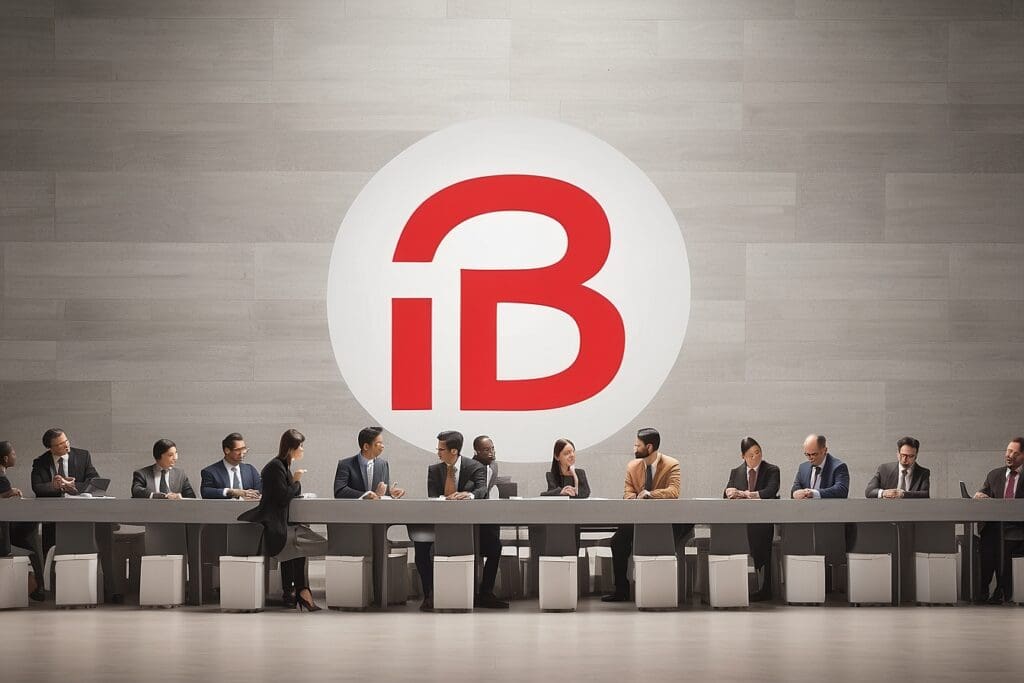Many of us want our shopping to support good causes, but it’s hard to know where to start. B Corporations are businesses that meet the highest standards for social and environmental performance.
This article will guide you through what B Corps are and why they matter, helping you make more informed choices as a consumer. Read on and become part of the change!
Key Takeaways
- B Corporations balance social and environmental goals with profit, attracting consumers and investors interested in ethical business practices. They undergo a strict certification process by B Lab to show they meet high standards of accountability, transparency, and positive impact on society.
- Challenges for achieving B Corp status include the demanding assessment process, aligning shareholder expectations with broader stakeholder impacts, and managing tax implications while maintaining their mission-driven focus.
- Leading examples of successful B Corps are Patagonia, Ben & Jerry’s, Seventh Generation, New Belgium Brewing, The Body Shop, and Etsy. These companies prove it is possible to combine commercial success with making a significant impact on society and the environment.
What is a B Corporation?
A B Corporation is a for-profit business that has been certified by the non-profit organisation, B Lab, as meeting rigorous standards of social and environmental performance, accountability, and transparency.
It’s different from traditional corporations in that it aims to balance purpose and profit while considering stakeholders’ success.
Definition

B Corporations, or B Corps, are for-profit businesses that meet rigorous standards of social and environmental performance, accountability, and transparency. They aim to create a positive impact on society and the environment while operating their enterprises.
Unlike traditional corporations focused only on profit maximisation, B Corps work towards a triple bottom line: people, planet, and profit. This unique approach allows them to address some of today’s most challenging issues while also seeking financial security.
Certification for these mission-driven companies comes from the non-profit organisation B Lab. To earn B Corp status, companies must undergo a detailed assessment that measures their impact on workers, customers, community, and environment.
Achieving this distinction signals to customers, investors, and employees alike that the company not only talks about ethical business practices but puts them into action with every decision made.
B Corp Certification
B Corp Certification signifies a commitment to balancing profit and purpose. It’s a rigorous process that evaluates a company’s social and environmental performance. The certification requires companies to meet high standards of transparency, accountability, and social and environmental performance. This includes considerations such as worker wellbeing, environmental sustainability, and overall impact on society.
- B Corps undergo a comprehensive assessment to verify their positive impact on workers, customers, suppliers, community, and the environment. They must achieve a minimum score across all areas to obtain certification.
- The certification is granted by B Lab, a non-profit organisation dedicated to using business as a force for good. B Lab assesses applications based on an extensive set of social and environmental criteria.
- Once certified, B Corps are legally required to consider the impact of their decisions not only on shareholders but also on workers, communities, and the environment.
- B Corp Certification sets an organisation apart in the marketplace as it illustrates its commitment to ethical capitalism and sustainable business practices.
Differences between B Corps and traditional corporations
Having explored B Corp certification, let’s delve into how B Corps stand apart from traditional corporations.
| Aspect | B Corporations | Traditional Corporations |
|---|---|---|
| Purpose | Committed to creating public good, alongside profit. | Prioritise maximising shareholder profits. |
| Accountability | Must consider impact on all stakeholders. | Focus mainly on shareholder interests. |
| Transparency | Required to publish detailed reports on social and environmental performance. | Disclosure often limited to financial performance. |
| Performance Standards | Must meet high social and environmental criteria. | Environmental and social governance can vary widely. |
| Legal Framework | Legally required to balance purpose and profit. | Often governed by laws emphasising profit maximisation. |
| Investment Appeal | Attracts impact investors interested in sustainability. | Attracts a broad range of investors primarily seeking financial returns. |
| Consumer Base | Appeals to conscious consumers valuing ethical practices. | Targets a wide demographic, with varying concerns for ethical practices. |
The Advantages of Becoming a B Corp
Becoming a B Corp offers businesses the opportunity to demonstrate their commitment to social and environmental responsibility, which can attract customers and investors while also engaging employees and improving satisfaction.
This certification sets companies apart as mission-driven, socially responsible businesses that prioritise stakeholder success alongside profit.
Social and environmental responsibility
B Corporations prioritise social and environmental responsibility, aiming to make a positive impact on the world. These mission-driven companies hold themselves accountable for their environmental footprint, striving to operate in an ethically and environmentally sustainable manner.
By pursuing B Corp certification, businesses demonstrate their commitment to stakeholder success and social change.
Furthermore, as socially responsible businesses, B Corps engage in impact investing and corporate citizenship initiatives that contribute to positive environmental and social outcomes.
Attracting customers and investors
B Corporations attract customers and investors who value social and environmental responsibility. These individuals seek out businesses that align with their values, making B Corps an appealing choice for consumers and shareholders alike.
By holding themselves to higher standards of accountability and transparency, B Corps build trust with environmentally conscious individuals, supporting conservation efforts in the process.
Entrepreneurs looking to engage socially responsible consumers can leverage a B Corp certification as a competitive advantage. This recognition demonstrates a commitment to ethical business practices while signalling credibility within the market.
Engaging employees and improving satisfaction
B Corporations prioritise engaging employees and enhancing satisfaction. By aligning with a greater purpose, these socially responsible companies motivate their employees to contribute towards meaningful environmental impact.
This approach fosters a positive work environment that enhances job satisfaction and employee morale, ultimately leading to increased productivity and commitment.
Furthermore, B Corp certification provides a tangible demonstration of the company’s commitment to social and environmental responsibility, which can serve as an additional source of pride for employees seeking purpose-driven businesses.
Engaging them in the company’s mission fosters loyalty and dedication among team members who share similar values – creating a shared sense of accomplishment.
The Challenges of Becoming a B Corp

Obtaining certification can be challenging, potential conflicts with shareholder primacy and tax implications are also factors to consider. To learn more about the significance of B Corporations and how they impact society and the environment, keep reading!
Difficulty in obtaining certification
Obtaining B Corp certification can be challenging for companies due to the rigorous assessment process, which evaluates their social and environmental performance. Meeting the high standards set by B Lab, the non-profit organisation behind B Corp certification, requires significant effort and resources.
Companies need to demonstrate their commitment to sustainable practices, transparency in business operations, and accountability across all stakeholders. Furthermore, they must meet specific legal requirements designed to ensure that their social and environmental impact is embedded into their corporate DNA.
The process of obtaining B Corp certification involves a comprehensive evaluation of a company’s operations from an ethical standpoint. This includes assessing its governance structure, treatment of employees, impact on the environment, and engagement with local communities.
Potential conflicts with shareholder primacy
B Corporations may face potential conflicts with shareholder primacy, as traditional corporations prioritise maximising profits for shareholders above all else. This conflict arises because B Corps must balance their social and environmental missions with the financial interests of their shareholders.
Shareholder primacy focuses on short-term financial gain, while B Corps aim to create long-term value for all stakeholders, including employees, communities, and the environment. This misalignment can lead to tension between pursuing sustainable practices and meeting shareholder demands.
The potential conflicts with shareholder primacy highlight the need for a shift in corporate mindset towards long-term sustainability rather than solely focusing on immediate financial gains.
B Corps have to navigate this delicate balance by demonstrating that prioritising social and environmental responsibility can ultimately benefit the company’s bottom line in the long run.
Tax implications
B Corporations face specific tax implications. They are required to meet stringent standards and practices, which may impact their tax situation. This can include potential tax benefits related to environmental or social responsibility initiatives, along with the need for transparent financial reporting to maintain their B Corp certification.
Additionally, B Corps may also encounter challenges when navigating tax laws due to their unique status as mission-driven businesses. As they prioritise social and environmental responsibility, they must ensure that their tax strategies align with these values while remaining compliant with legal requirements.
Examples and Impact of B Corporations
Certified B Corps such as Patagonia and Ben & Jerry’s have shown that it is possible for businesses to be successful while prioritising social and environmental impact. The overall impact of B Corporations has been significant in driving positive change in the business world.
Number of certified B Corps
The number of certified B Corporations, known as B Corps, has been steadily growing. Currently, there are over 3,800 certified B Corps across 150 industries in over 70 countries. These companies have undergone a rigorous assessment to prove their commitment to social and environmental responsibility alongside their profit-making goals.
Each year, the community of B Corps continues to expand as more businesses recognise the importance of balancing purpose and profit.
Becoming a certified B Corp involves meeting high standards of social and environmental performance, transparency, and legal accountability. The increasing number of certified B Corps reflects the global shift towards valuing sustainability and ethical business practices.
Successful B Corp examples
B Corporations exemplify responsible and sustainable business practices. Let’s take a look at some successful examples:
- Patagonia: This outdoor apparel company has a strong commitment to environmental conservation, using recycled materials in their products and donating a percentage of sales to environmental causes.
- Ben & Jerry’s: Known for its commitment to social and environmental causes, this ice cream company is a leader in sustainable sourcing and fair trade practices.
- Seventh Generation: A leading brand in environmentally friendly household products, committed to reducing their carbon footprint and using plant-based ingredients.
- New Belgium Brewing: This craft brewery prioritises sustainability, with initiatives such as employee ownership, waste reduction, and investing in renewable energy.
- The Body Shop: Renowned for its ethical sourcing of natural ingredients and commitment to animal welfare, this skincare and cosmetics company promotes community trade partnerships.
- Etsy: An online marketplace supporting independent artisans and promoting sustainability through eco-friendly packaging options and the reduction of carbon emissions from shipping.
Overall impact on society and the environment
After achieving B Corp certification, these socially responsible businesses have a significant positive impact on society and the environment. They demonstrate that for-profit companies can be driven by a purpose beyond just making profits, considering social and environmental impacts alongside financial performance.
Through their commitment to higher ethical standards, they set an example for other businesses while contributing to the global effort towards sustainability. By aligning their operations with sustainable practices, B Corps help reduce negative environmental footprints and promote more responsible business behaviour within their respective industries.
Empowering communities, promoting diversity and equity, as well as actively engaging in environmentally friendly practices are some of the ways B Corporations contribute positively to society and the environment.
Conclusion
6. Conclusion.
B Corporations play a vital role in today’s business landscape by prioritising social and environmental responsibility. These mission-driven companies attract customers and investors who value ethical practices, while also engaging employees through a sense of purpose.
Despite challenges such as certification difficulty and potential conflicts with shareholder primacy, the impact of B Corps on society and the environment is undeniable. As more for-profit businesses embrace this model, the significance of B Corporations continues to grow, creating a positive ripple effect in our world.
FAQs
1. What makes B Corporations different from regular companies?
B Corporations stand out as mission-driven companies that balance profit with their social and environmental missions, aiming to benefit both employees and communities.
2. Can for-profit businesses be B Corporations too?
Yes, for-profit businesses can achieve B Corporation status by committing to greater transparency, accountability, and serving a broader purpose beyond just making money.
3. Why are employee engagement levels higher in B Corporations?
Employee engagement is typically higher in B Corporations because the workers feel connected to the meaningful work and values these purpose-driven businesses uphold.
4. Are all social enterprises also considered B Corporations?
Not all social enterprises are B Corps; however, those who meet rigorous standards of performance, accountability, and transparency could qualify as purposedriven B corporations.



